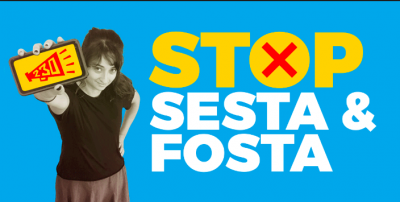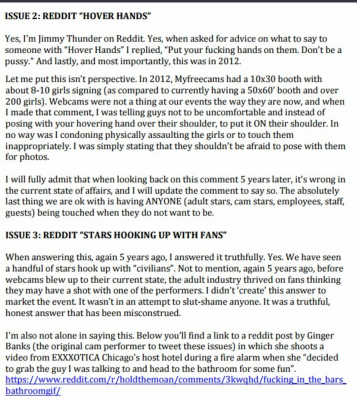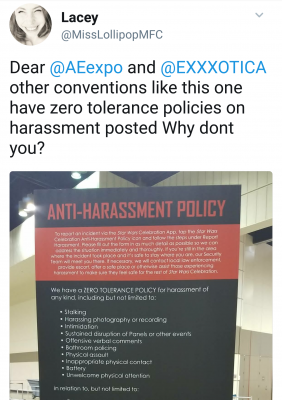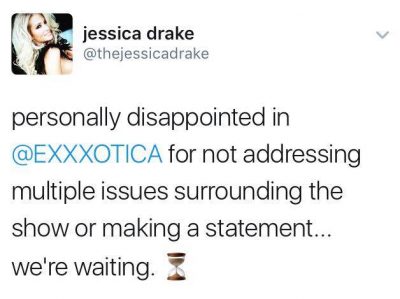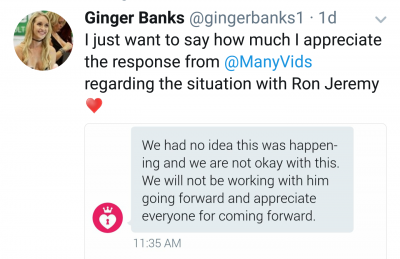
When you think of September, what comes to mind? Children returning to school? Apple cider in the markets? Autumn colors? New beginnings?
What about abstaining from porn and masturbation?
That’s a new September tradition that recently formed subreddit, r/NoSimpSeptember, is hoping to make a reality. The group of now more than 2,300 members encourages men to avoid online interaction with women—particularly with online sex workers and porn performers.
Like No Nut November that came before it, No Simp September is an internet challenge that discourages men from acting like “simps.” This term is popping up more and more. I personally had to ask the Gen Z’ers that live in my house to explain it to me. And, from what I gather, a simp describes a boy or man who seeks attention from or is overly concerned with pleasing women, especially if those women aren’t returning this “kindness” with sexual favors.
Looking at r/NoSimpSeptember’s 6 rules gives valuable insight into what the group is trying to avoid. To paraphrase:
- If you break a rule, don’t lie about it.
- Don’t give money to online sex workers. In their words, “booby streamers, TikTok (*shudders*) dancers, E-girls, etc.”
- Don’t decline social events in order to watch “any of the culprits above.”
- Don’t upvote, like, or look at women’s photos online.
- Don’t watch pornography.
- Do group check-ins.

As an online sex worker who could reasonably be called a booby streamer or an E-girl—though I’ve honestly never used either of those words, and I’m certainly too old for TikTok dancing—this got me wondering what it is about online sex workers that has these men angry enough to ban interaction with us all together (albeit temporarily), and, moreover, to publicly celebrate themselves for doing so. After all, no one is forcing them to interact with us.
I emerged from the Reddit rabbit hole still curious what to make of all this, so I turned to a few of my colleagues to ask how they understood the NoSimps. As hoped, they had more reflection and insight than anything I read on the NoSimp forums.
…
While the NoSimp rules appear to be obsessed with women who sell sexual content online, Bitcoin Stripper, who describes herself as a multifaceted sex worker, says that she doesn’t think this is really about sex work. She says, “I don’t think the original intention was explicitly to harm online sex workers or OnlyFans. The sex worker becomes the object of negative focus/hatred/avoidance much like a bottle of whisky becomes the hated nemesis of an alcoholic or how a sex addict has a compulsive relationship with their dating apps.”
Online sex workers are more sexually available to these men (at a price, of course) than our civilian counterparts, and these interactions make the NoSimps feel vulnerable. She goes on, “These NoSimps are so lacking in personal self-control, they require a massive support group to validate their struggle and give them the control they lack internally.”
Princess Berpl, an online sex worker and content creator, agrees with this, pointing out that part of this insistence on control is posturing to the men in their online community that they are not weak. She says, “Some people (primarily men) on the internet who want to feel different from an imagined group of ‘simple’ guys. In their mind, these ‘simps’ are so gullible that they’ve been tricked into supporting content they like, created by evil women like me.” She goes on, “If you’re a woman on the internet who makes an income through streaming or content creation, you’re hustling these poor lonely ‘simps’ for their money by preying on their desire to have a connection with women.”
This interpretation seems to line up with their fear of handing financial control over to online sex workers. Their second rule, after all, clearly states, “[Giving money to sex workers] is one of the purest forms of simping, you are submitting and surrendering your financial power for a fleeting moment of lust.”
It is perhaps not surprising that this forum popped up in 2020, when a global pandemic has pushed many of our interactions, including our sexual ones, online. Bitcoin stripper suggests this is contributing to the intensity of the NoSimp’s sentiments. She says, “They are staying at home jerking their dicks raw… then their internal shame machines kick into overdrive.”
In other words, the underlying problem for the No Simps is not that we booby streamers and the TikTok dancers exist; rather, the problem for NoSimps is their own feelings of shame, inadequacy, and unfulfilled entitlement to sex that they attempt to assuage by, as Bitcoin stripper says, “shifting focus and blaming sex workers.” Far more intoxicating than sex workers is the way in which these NoSimp echo chambers paper over this collective shame with a veneer of moral superiority—they offer men a chance to feel good about the things that otherwise haunt them, even if that feeling is fleeting.
Thus, abstention from using online sex workers’ services is, at best, a distraction from the real problem (and I don’t just say that because I want to get paid—though of course I do). The anger and resentment these men feel won’t disappear unless and until they change the expectations they have of women, in general, and sex workers, in particular, to provide sexual gratification without some form of reciprocity. Entitlement—and not the women whose attention they feel entitled to—is the real source of the NoSimp’s unhappiness.
Marcela Luv, an online sex worker agrees. “As someone online I think it’s very healthy to enjoy porn and rub one out and go about your business.” She goes on, “I have some wonderful fans that respect me and just jerk off and go on with their day, I call them my bust a nut guys and I let them know it’s healthy and I understand them cause dating can be difficult.” But the key here is using the services sex workers provide in a way that is beneficial to both sex workers and clients.
Princess Berpl believes that this is possible and wants to see a world in which this sort of collaboration is healthy and fruitful, and where the relationship between workers and consumers is not a hostile competition in the way NoSimps assume it must be. “I want to create content and a community where people can share their thoughts and explore themselves in a way that doesn’t shame them just for being themselves,” she says. “And I dislike there being a shame-focused meme targeted at men who are already struggling to embrace themselves and their connections to women.”
This can be done only if NoSimps are willing to reflect on their relationship to us and our content. How might they go about doing this? Princess Berpl has a practical suggestion: “One resource I think might be helpful is a YouTube channel called HealthyGamerGG where a Harvard-trained psychiatrist named Dr. K streams conversations with incels about the experiences that support their hostile feelings about women. I imagine it would help a lot of guys work through their issues.”
Jessie Sage is the co-host of the Peepshow Podcast and the co-founder of Peepshow Media. She is a sex worker, educator, and writer. She writes a weekly syndicated sex column, and her articles have appeared in the Washington Post, Men’s Health, Hustler, VICE’s Motherboard, ZeroSpaces, and more. You can follow her on Twitter @sapiotextual




